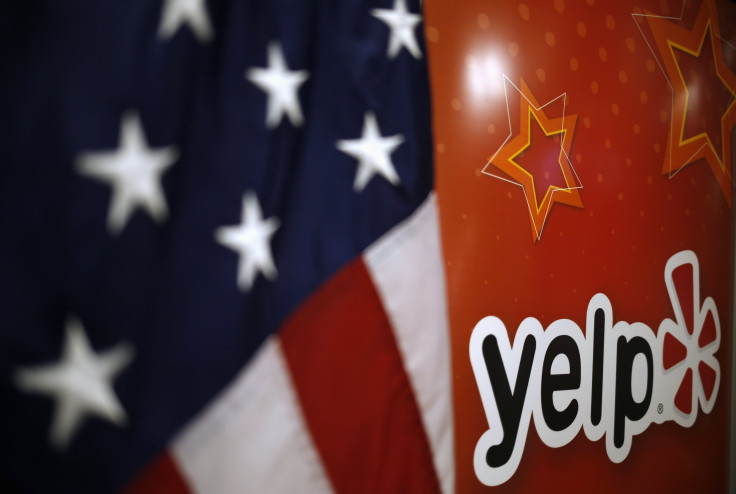Yelp Lawsuit: Sidecar Drivers Sue For $5M For Withholding Tips The Restaurant Review Company Encouraged

The restaurant rating app Yelp was hit with a $5 million lawsuit late last week as drivers working for a Yelp-owned delivery service alleged the company stole tips from them. The drivers said that they never saw tips that their company automatically recommended when customers placed their orders.
The lawsuit, filed on Friday in a San Francisco court, alleges that Yelp’s Eat24 app would automatically recommend that customers add a tip to the delivery, but once those tips were added, the cash didn’t make its way into the hands of delivery drivers. The plaintiffs are two Sidecar drivers, one of several ridesharing services in the country. The drivers claim to be filing their suit on behalf of drivers nationwide, and say that Yelp failed to even mention when a tip was added to an order, according to Fortune.
Eat24 functions in a pretty similar way to other food delivery apps, such as GrubHub and Delivery.com. Yelp acquired the service in February for $134 million in order to expand its sources of revenue and move its reach closer to working with the actual restaurants listed on its site.
Yelp denied having withheld tips from drivers in a statement provided to Eater.com. The company said that the tip issue is a Sidecar problem, not theirs. Yelp contends that they provided Sidecar with the tips for each delivery, and it is not their responsibility to distribute the tips directly to the drivers.
An increasing number of labor-on-demand tech firms have found themselves battling lawsuits or legal pressures recently, as the services play an increasingly prominent role in people’s lives. Last year, Seamless revised their tipping policy under pressure from New York officials, and rideshare companies Uber and Lyft have been battling their own lawsuits surrounding tips as well.
In other ways, too, the companies may encounter growing pains. The discussion of workers’ rights and protections for the drivers and deliverers of these services has become a point of contention, with Democrats looking to regulate the industry better, and Republicans hoping to leave the government out of the discussion.
© Copyright IBTimes 2025. All rights reserved.






















